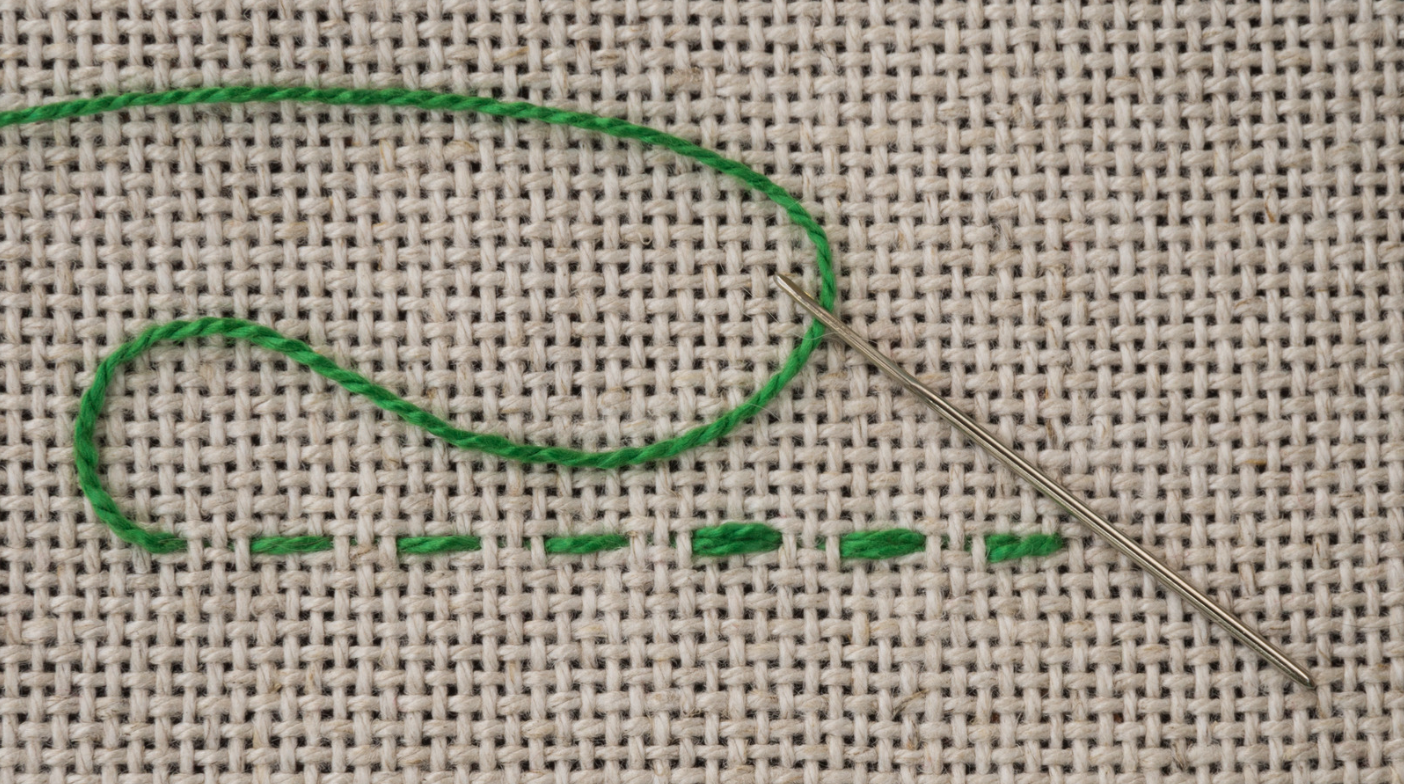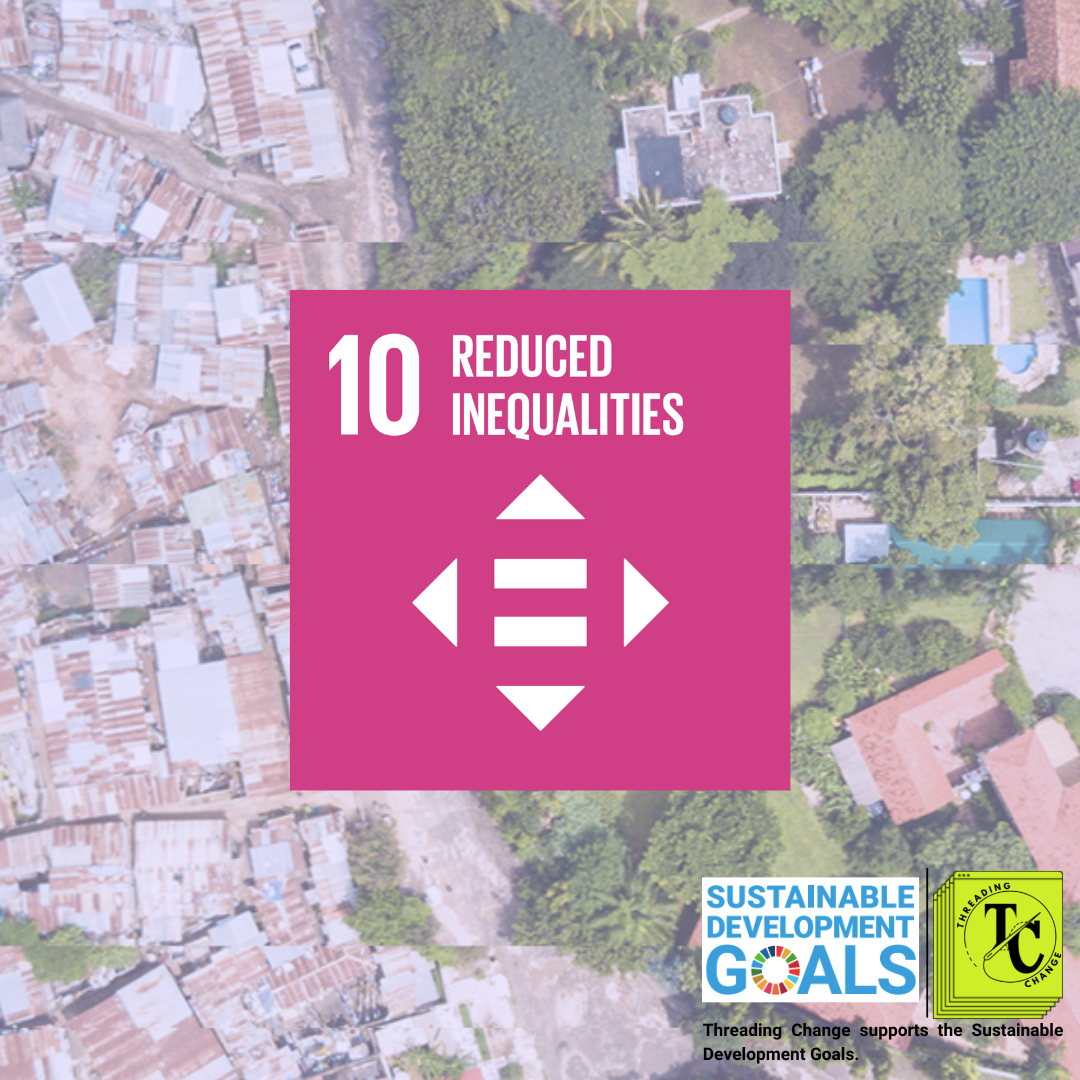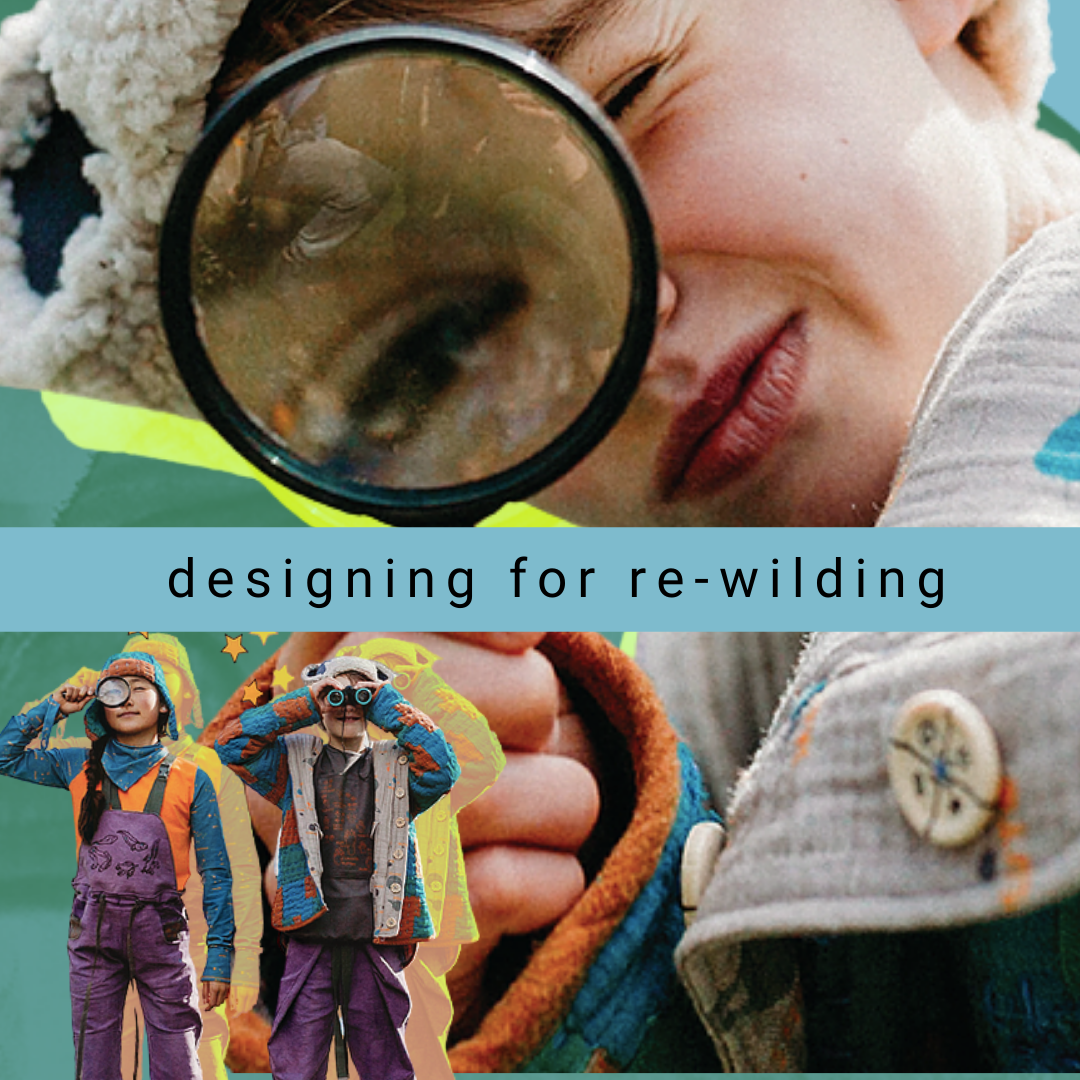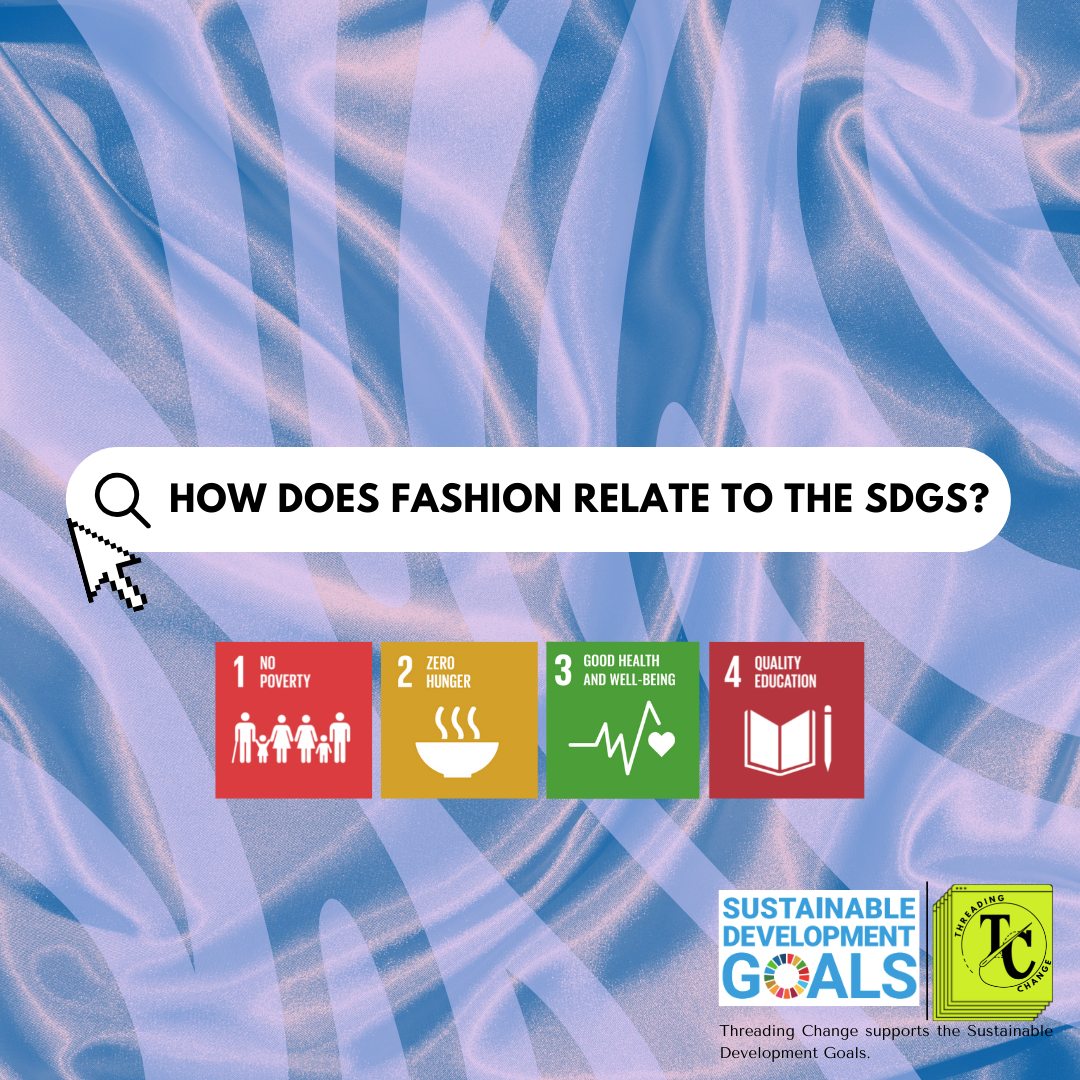
The Green Stitch Blog

SDG 11: Sustainable Cities and Communities & SDG 15: Life on Land
In this special edition of the ThreadingChangeXSDG we take a look at the connection that SDG 11 and 15 have to the fashion industry and the connections that these SDGs share with one another.
This article dives into the many threats that the current fashion model imposes to life on land as well as how they inhibit local economies and communities to become sustainable and healthy spaces for people and the planet to thrive.

SDG 10: Reduce inequality within and among countries
SDG 10 looks at many issues that the COVID-19 pandemic has exposed and deepened the wage crisis for garment workers, leaving them with struggles to access adequate housing, healthcare and healthy nutritious food. Globally, garment workers face wage theft, including more than $11 billion in the first year of the pandemic.

SDG 9: Building Resilient Infrastructure, Inclusivity, Sustainable Industrialization and Innovation
SDG 9 looks at many issues related to industry, innovation and infrastructure inequities when it comes to sustainable economic growth. Before the start of the COVID-19 pandemic, there were already key indications that many key infrastructures were crumbling. The COVID-19 pandemic has exposed the lack of workplace infrastructure and it has worsened with the climate crisis.

Designing for Re-wilding
Rewilding is a lifestyle, social-environmental movement, and an embodied process and practice of understanding our roles as members of a greater ecosystem. It is a way of living and being which calls on each other to have a profound level of empathy for the land, people and resources.

Young Entrepreneurs: How Taylor Smith Started her Fashion Brand During Quarantine
Taylor Hollan is a sustainable fashion brand who gives old fabrics new life by repurposing them into unique handmade tops and dresses. We talked to founder Taylor Smith about the inspiration behind her brand and how she managed to start her own company while still being a student in college.

SDG 8: Decent Work and Economic Growth, and the Fashion Industry
Garment workers are exploited, underpaid, abused and used as commodities. There is an intricate linkage between SDG 8 and the fashion industry. The industry is built from a web of inequality and exploitation with retailers and corporations profiting from the endless growth and race to the bottom economies.

Fashion for Healing: a Conversation with Scarabaeus Sacer
When it comes to fashion for a cause, ethical and sustainable fashion brand Scarabaeus Sacer (Scara-bay-os sacher) based in Egypt, has found a way to connect people through their advocacy on fashion for healing as they lead the conversation on why it is important to talk about mental health for the well-being of both people and the planet.

SDG 7: Affordable and Clean Energy, and the Fashion Industry
SDG 7 highlights the goal of affordable and clean energy and contains three aspects including energy access, renewable energy and energy efficiency.

Remembering Rana Plaza: What can be Learned, and How the Industry has Changed
On April 24th, 2013, Rana Plaza collapsed in Dhaka, Bangladesh. This eight-story garment factory killed at least 1, 134 people as it came crashing down, and if that isn’t gut-wrenching enough, this tragedy could have been prevented…

SDG 6: Clean Water and Sanitation and the Fashion Industry
SDG 6: Ensure access to water and sanitation for all". There is increased access to clean drinking water and sanitation, but billions of people - including many indigenous communities - still lack these basic services. As well as many of our water systems are contaminated and world water resources are in an ecological crisis. Worldwide, 1 in 4 people (2 billion people) around the world lack safe drinking water (WHO/UNICEF 2021), and almost half of the global population (3.6 billion people) lack safe sanitation. (WHO/UNICEF 2021).

SDG 5: Gender Equality and the Fashion Industry
Gender equality is one of the most disused goals but there are still so many targets to reach in regards to eliminating the root causes of discrimination against women, transgender, non- binary and 2-spirit people that persists within the private and public spheres.



The Mushroom Movement: Are fungi the key to a more sustainable leather future?
As one of the world’s most purchased products, leather is the engine of a multi-billion dollar industry. But consumers are increasingly becoming aware of its severe environmental impact. Bridging the gap between art, science and manufacturing, producers of mushroom leather promise to have found an innovative alternative to the animal-based material.

Love Letters to my Clothing: Understanding Emotional Attachment to Clothing
I hold on to clothing like I hold on to friends - with tender care and loving, always. Why? Because my clothing is an outward expression of who I am. I can’t go anywhere without feeling comfortable and happy in the things that I wear, but even more so, I can’t go anywhere without feeling like my clothing tells a story. And this dear reader, comes from an emotional attachment to my clothing.

What Really Happens to Donated Clothes? And what can we do with them instead?
Have you ever considered what happens to your clothes after you donate them? Or is it out of sight, out of mind? The truth is, we can't blame you. My wardrobe, just like that of many Kenyans who shop second hand, consists of clothes from all over the world. According to the 2018 United Nations Comtrade statistics, our clothes come from at least 20 countries with China, Pakistan, Canada, the UK, and the USA being at the top of our imports.

SDGs 1-4 Recap: No Poverty, Zero Hunger, Good Health and Well-being, and Quality Education
The fashion industry has contributed to maintaining poverty and food insecurity globally. Fashion impacts food insecurity in two ways: the taking of the land and the usage of the land. Food security means food sovereignty; the materials are part of a much larger picture of colonization and exploitation of the Indigenous people of the land and their traditional agricultural practices and systems.

COP26 Webinar Recap
For three decades the United Nations has hosted the conference of parties (COP) to gather countries to tackle the global climate crisis at an international level. The 26th edition was hosted in New Glasgow. Being held during Covid-19, Covid-19 and its impacts on communities was a dominant topic. In addition, the UN Sustainable Fashion Charter is one of many agreements that had renewed commitments. COP26 saw the UN Sustainable Fashion Charter draft up renewed statements with updated science-based emission reduction targets, commiting to halving emissions by 2030 (an update on the previous target of 30% reductions by 2030) and achieving net-zero emissions by no later than 2050. The charter also urges big brands to secure 100% of electricity from renewable sources with minimal other environmental or social impacts, for owned and operated (scope 2) emissions by 2030.

Fashion at COP26: What Happened? Webinar
COP26 was the first United Nations climate negotiations conference to happen in a post-COVID-19 world. Many countries and organizations were at the table, examining the feasibility of renewing climate targets, raising ambition in the process, and planning amidst the climate emergency during a global pandemic.

COP26 Read of the Week Roundup
Compiled here are a number of articles worth reading for more information on COP26 and its relation to fashion. We here at the Threading Change team encourage you to go through this list and learn more.
